Today, every 3rd person of the total Indian population needs spectacles. The growth of technology has led to the increased use of laptops. A sedentary working style and constant gazing at the laptop screens have led to many eye problems. Some of them are:
- Hyperopia (farsightedness,i.e. difficulty in seeing close objects)
- Myopia (nearsightedness, i.e. difficulty in seeing far objects)
- Astigmatism (blurred distant or near objects)
- Presbyopia (gradual decrease in visibility of near objects in 40+age group)
- Frequent headaches, and others.
All these are medical conditions related to poor visibility. So good glasses have become an essential commodity.
The eyewear industry of India:
The struggle begins for a person to get involved in physical shopping for glasses. It requires a lot of patience and time to visit an optician. You need to get your eyes tested and select an apt frame for the glasses. Also, wait a long time to receive the selected eyewear. To sum up, eyewear has become a need for some and a fashion element for some. So the sale of eyewear has increased over the past few years. Every day approximately 15 lacs spectacles are being sold in the Indian market. The eyewear industry saw a revolutionary new turn in 2010, with the emergence of Lenskart.
Establishment:
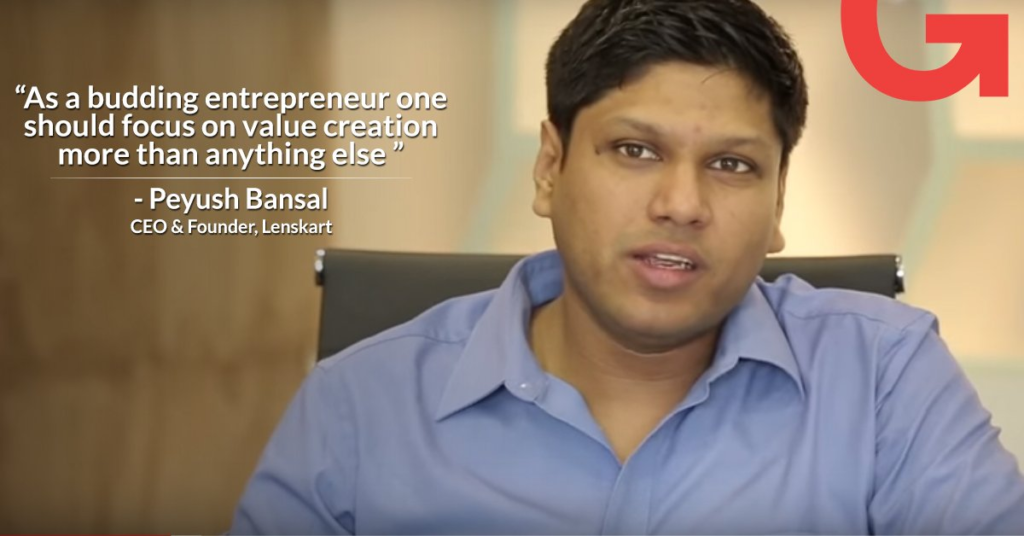
Lenskart is a Faridabad based optical prescription eyewear retail chain. Founded by Peyush Bansal in 2010. It revolutionized the unorganized eyewear industry of India. The founders focus on three main pre-existing problems of the Indian eyewear industry:
- Eyewear was being considered medical equipment and the wearer did not feel good about wearing it
- Branded eyewear had higher prices starting from Rs. 1500.
- People had very low accessibility to opticals in India.
The company has launched the widest range of eyewear products. Like contact lenses, prescription glasses, sunglasses, anti-glare glasses, try-at-home glasses, and many more. It has marked its presence offline by having 550+ kiosks across various states of India.
Lenskart’s mission is to become the “Maruti Suzuki” of the Indian eyewear industry. The company has emerged as one of the best e-commerce companies. It has online as well as offline distribution mediums. Lenskart earned the “Unicorn Company Status” at the end of 2019.
Lenskart is the first and the only Indian brand that uses robotic technology to deliver specs that are accurate to 3 decimal places. The brand also delivers services like 3D Try On and Home Eye Check-Up. The manufacturing plant of Lenskart lies in Rajasthan.
About Lenskart:
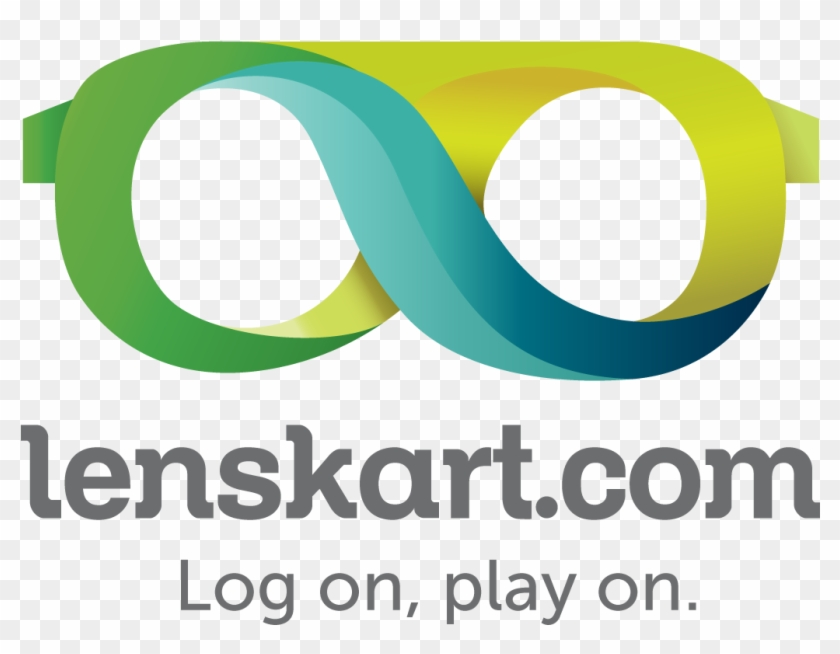
| Founded in: | 2010 |
| Founders: | Peyush Bansal, Sumeet Kapahi, Amit Chaudhary |
| CEO: | Peyush Bansal |
| Legal Name: | Lenskart Solutions Pvt. Ltd. |
| Parent company: | Valyoo Technologies |
| Headquarters: | Faridabad, India |
| Industry: | Prescription Eyewear, E-Commerce |
| Website: | www.lenskart.com |
| Tagline: | “Log on, Play On!” |
| Mission: | “Our mission is to give India a vision” |
| Logo: | Font used for the Lenskart logo was “Rajdhani” |
Founders:
Peyush Bansal: Born on 26th April 1985, he holds a Bachelor’s degree in the branch of Electrical Engineering, IT, Control & Automation from McGill University, Canada. On completion of his graduation in 2006, he pursued his PGD in entrepreneurship from IIM (Indian Institute of Management), Bengaluru. Soon after completion of his PG, he joined Microsoft as a programming manager in the USA. He served there for around 11 months then returned to India to pursue his dream of becoming an entrepreneur. He launched around 5 companies before the launch of Lenskart.
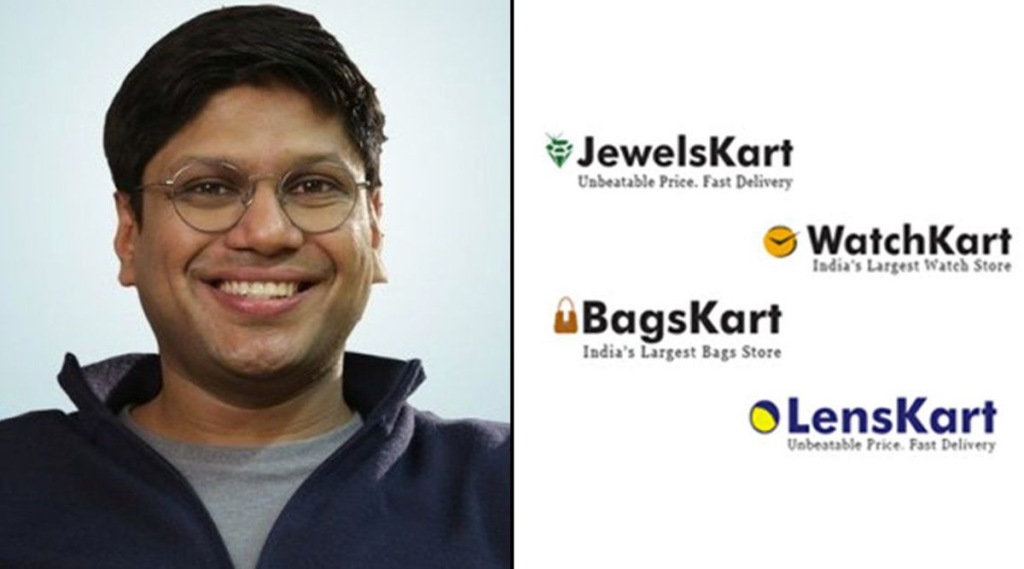
During his IIM days, he launched his own company Valyoo Technologies in 2007. He launched a campaign under the name “SearchMyCampus” with Rs. 25,00,000 investment, which was a great hit. It was a classified online portal for students to solve their problems. Like finding part-time jobs, carpool facilities, internship offers coaching books, etc.
During his exploration, he found the eyewear segment running very poor. He then launched an online store “Flyrr.com” in June 2009. It sold contact lenses, sunglasses, etc. This store was focused on the US market then he decided to replicate the same model in India and launched Lenskart in 2010.
In May 2011, Peyush Bansal launched “Watchkart.com” to sell premium watches from top-notch brands, like Tommy Hilfiger, Fossil, Emporio Armani, Casio, Fastrack, and others. The website displayed classy and exuberant watches and gained a lot of traction.
Bagkart.com was launched in August 2011 under Valyoo Technologies. The website sold a wide range of handbags.
Peyush Bansal launched another vertical in the name “JwelsKart.com”, with his three existing verticals Lenskart, WatchKart, and BagsKart, It sold jewelry of all kinds.
The company found that among all the verticals, Lenskart was performing much better. Due to low traction and a fall in revenue, Peyush Bansal had to shut down Watchkart, Bagskart, and Jewelskart in 2015. He could thus follow only on Lenskart.
Neha Bansal: She is another co-founder of Lenskart. She had served as a partner at Vinod Kumar and Associates before being in Lenskart.
Amit Chaudhary: Co-founder of Lenskart, Amit Chaudhary is a Computer Science Engineer from BITs Mesra, Ranchi. He has a passion for traveling to different places. Belonging to Kolkata, he did his schooling at Bharatiya Vidya Bhavan school. His deep understanding of technology and innovative ideas has led to revolutionary changes in the business.

Sumeet Kapahi: A student of Delhi University, Sumeet Kapahi was a business development manager of Luxottica India Eyewear (Rayban), before joining as one of the co-founders of Lenskart.

Revenue and funding:
Peyush Bansal founded Lenskart in 2010 along with his two friends Amit Chaudhary and Sumeet Kapahi. The financial backers of the company are TPG Growth, International Finance Corporation, Adveq Management, Ratan Tata, Kris Gopalakrishnan, Kedaara Capital, Chiratae Ventures, Rajeev Chitrabhanu, Eqip Capital, and IFC Venture Capital Group are investors in the company.
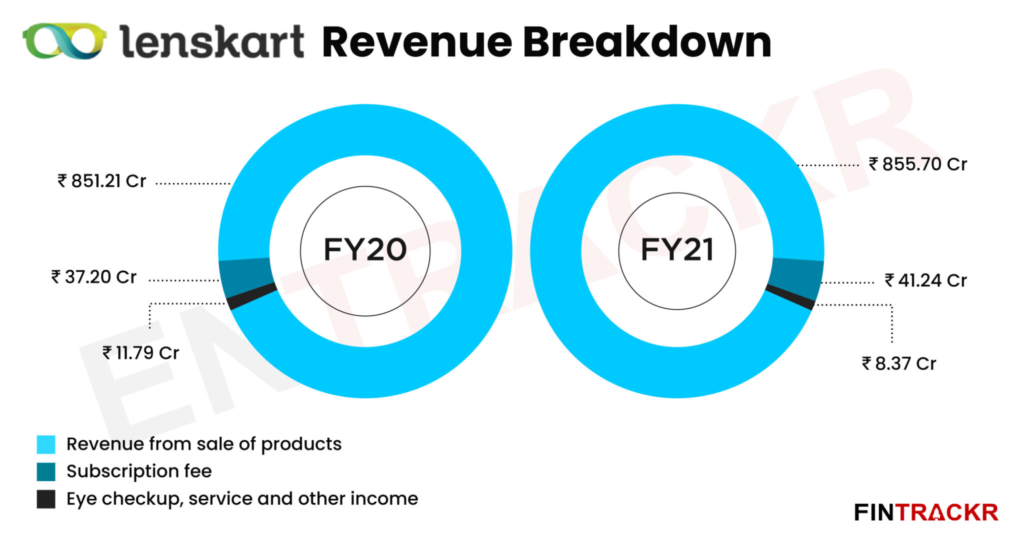
- 2017: Lenskart launched the international eyewear brand, John Jacobs.
- Katrina Kaif got launched as the first brand ambassador of the brand.
- 2018: Wipro Chairman Azim Premji invested INR 4 crore in the company. It increased the total valuation of the company to Rs. 3000 crores.
- 2019: Lenskart launched Bhuvan Bam as its first male brand ambassador.
- 2020: Lenskart generated total revenue of Rs.1,000+ crore
Business & marketing strategy of Lenskart:
- Inventory-based business model – Lenskart offers 5,000+ designs of frames and 45+ different quality lenses for its customers. The company passes on the designs to its manufacturers. While developing the products, the company focuses on superior quality, durability, wide range, innovativeness, and services like a 3-D testing facility. It uses German imported robotic technology, which has made Lenskart the only Indian brand to make eyewear with an accuracy of up to 3-decimals.

- Advertising on Google – Google ads are the most powerful strategies for businesses in today’s digital era. Lenskart uses this method and invests in paid advertising on Google. It uses popular keywords like eyeglasses, sunglasses, frames, and computer glasses. It also promotes its products through overpaid Google Shopping ads, where the viewer can themselves take an action. Lenskart uses Google ads through display ads, video ads, app download ads, and others.
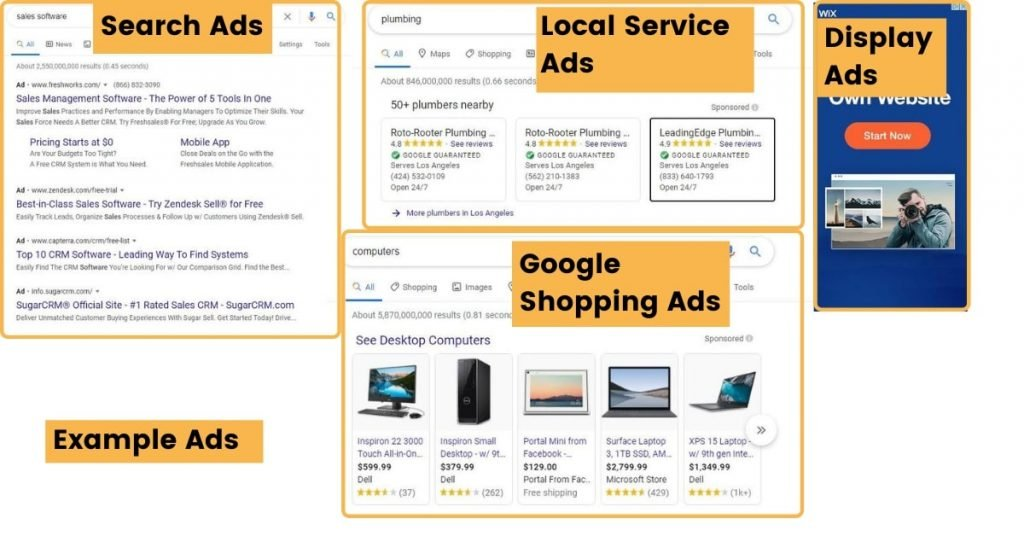
- Social Media Campaign – They run Facebook and Instagram ads to advertise their products. Lenskart also uses conventional advertisements, like newspaper ads, television ads, email marketing, and others. All these tin steps have made the brand emerge as a well-recognized eyewear brand in India.
- Omni-channel retail business model – The company observed the Indian mindsets and found that people are apprehensive about buying eyewear products online. Thus it focussed on establishing brick and mortar stores in India. The company offers services in both online and offline modes. It now has 550+ stores across 30+ cities.

- SEO – Lenskart website is well optimized to be user-friendly. The website has a strong SEO and gets 1.8 million visitors per month.
- Focus on quality and price- Lenskart saw the existing problems in the Indian market. It focussed on launching innovative and cost-effective products without compromising on their quality. “Lenskart Blu” is one of their innovative products that protect the eyes from harmful UV rays. It also offers a wide range of unbreakable, ultra-light, and super-flexible frames in the name of “Airflex”.

- Celebrity endorsements- The products of Lenskart are not an eyesight cure. But also create a style statement for the user. Thus the brand endorses popular personalities to attract the young mass. The first brand ambassador of Lenskart was Katrina Kaif followed by Bhuvan Bam. The brand is associated with popular premium brands, like Ray-Ban, Vogue, John Jacobs, and others. This facilitates the customers to get access to a wide range of premium products under one roof.

- Franchising for offline stores- In 2014, Lenskart ventured into offline stores to promote its products. It adopted the franchise model to serve people all over India. It now has 720+ stores across India and has plans to expand further. The franchise business model enhanced the online presence of Lenskart with minimal investment. During the covid-19 pandemic, most businesses had to shut down their stores. And turn into online mode. But Lenskart took a brave step by opening up 300+ stores making a total of 1000 stores. Lenskart focuses on reaching out to more customers through its offline stores.
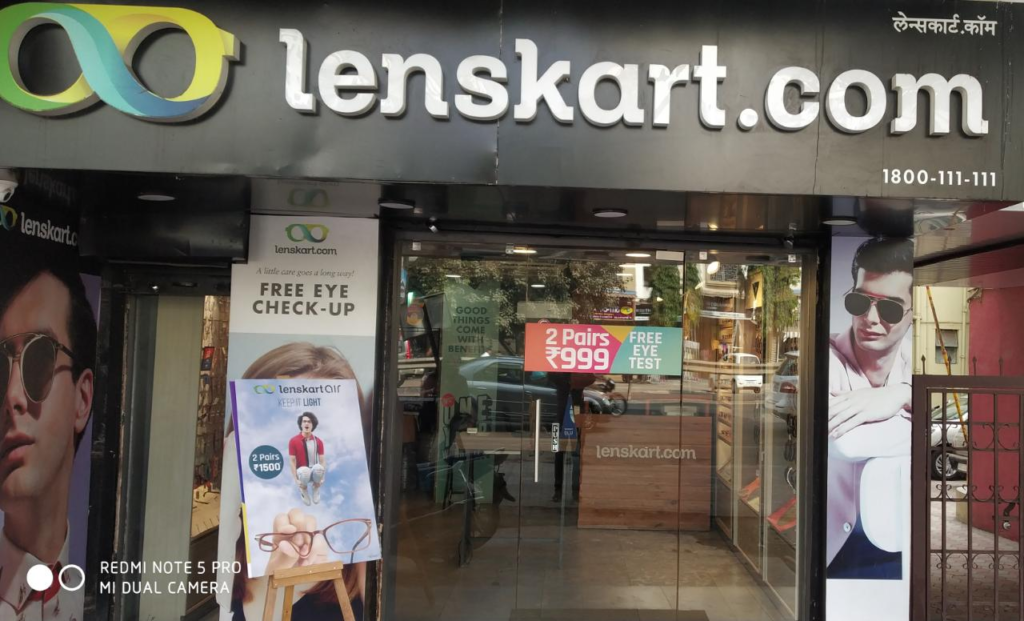
- Virtual reality technique- Lenskart offers a real-time experience to its customers through its app. The brand launched for the first time a 3-D try-on feature by collaborating with a start-up in California named Ditto. The feature offered the customer to try any frame in virtual reality. Peyush Bansal found this feature to be a very effective marketing strategy. As it brought around 15,000 customers every day to the Lenskart platform.
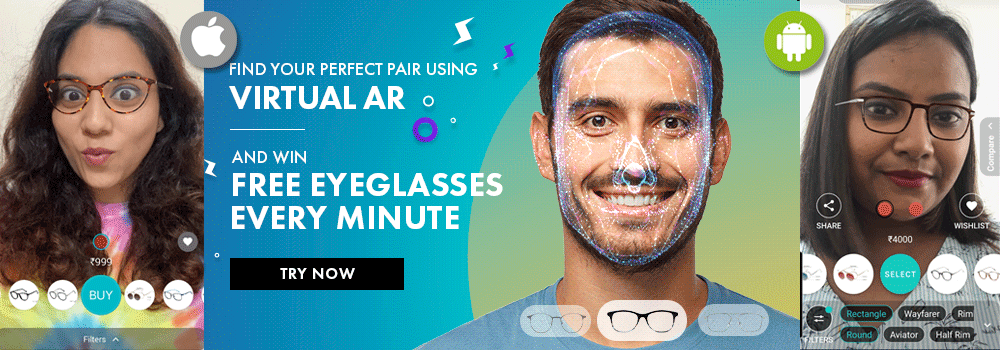
- B2C model- B2C refers to Business-to-Customer. It is an e-commerce strategy that eliminates the middlemen to sell the products. Lenskart uses this technique to sell its products through its websites and its mobile app. The B2C model has helped the brand make its products affordable for all. It collects customer feedback to understand their marketing behavior. Lenskart has collaborated with many logistics companies, like BlueDart, Delhivery, etc. for quick delivery services. It ensures timely and safe delivery of its products to the customers.
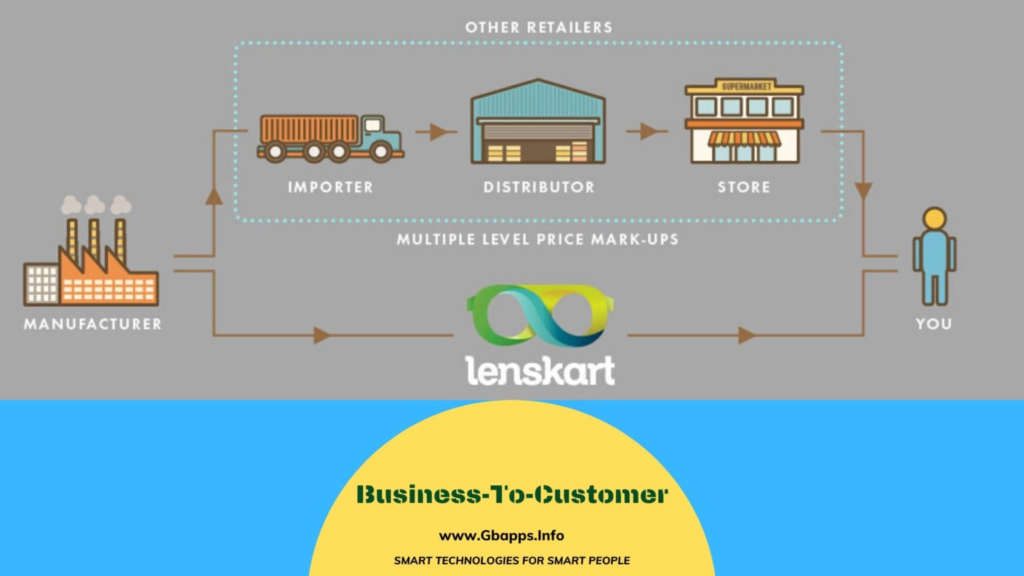
- Modern eye-testing- Lenskart offers advanced technology eye testing to its customers In stores as well as at their homes. The equipment used for eye testing gets imported from the USA, which is more efficient than the conventional tools and equipment used in India. The customer has to book an appointment for eye testing and an apt optometrist will visit their house to carry out the testing process.
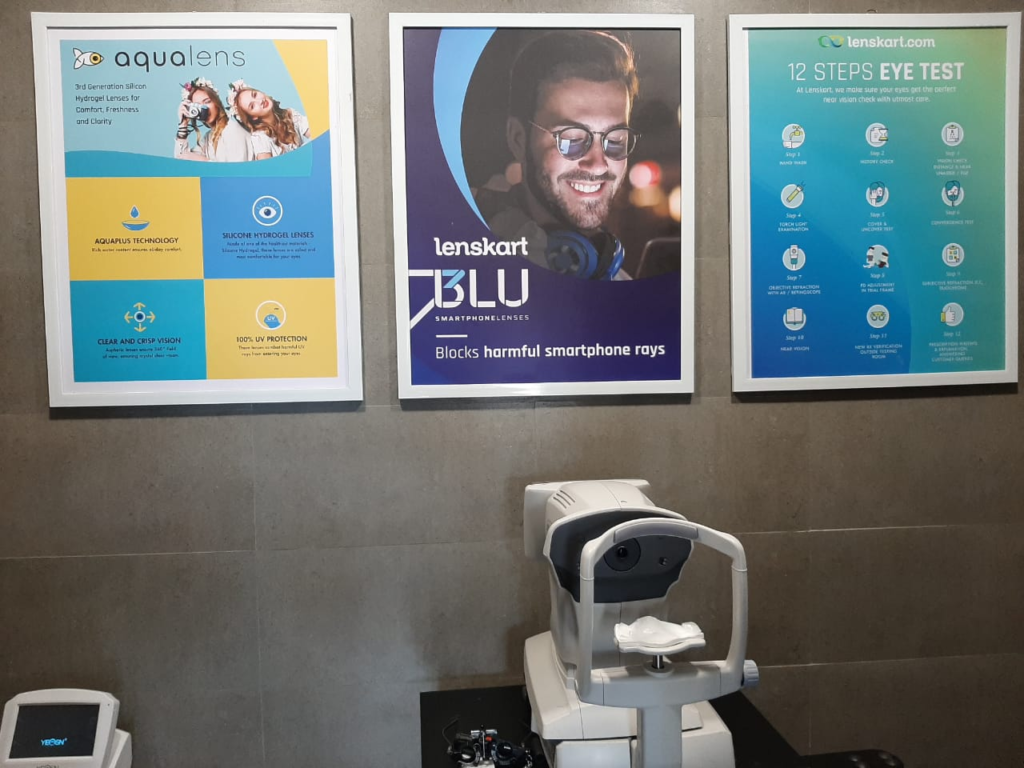
- Attractive discounts- Lenskart has studied the Indian mindsets and has understood that our local customers get fascinated with discount offers. The brand thus offers exciting discount offers and schemes. They offer discounts like free eye check-ups, offering the first frame free of cost to the new customer, and others. The home testing facility is an exciting offer in itself. The eyewear specialist carries with him the 100 most popular frames for the customers to try on at their homes. These offers and discounts have proved to be one of the best marketing strategies and have gained a lot of customers to the platform.

Brand ambassadors:
Katrina kaif- Lenskart appointed the famous Bollywood star Katrina Kaif in October 2017 as its first brand ambassador. Peyush Bansal said that the reason behind choosing Katrina Kaif as the brand ambassador was her playful attitude. As the brand is all about fun, fashion, and playfulness.
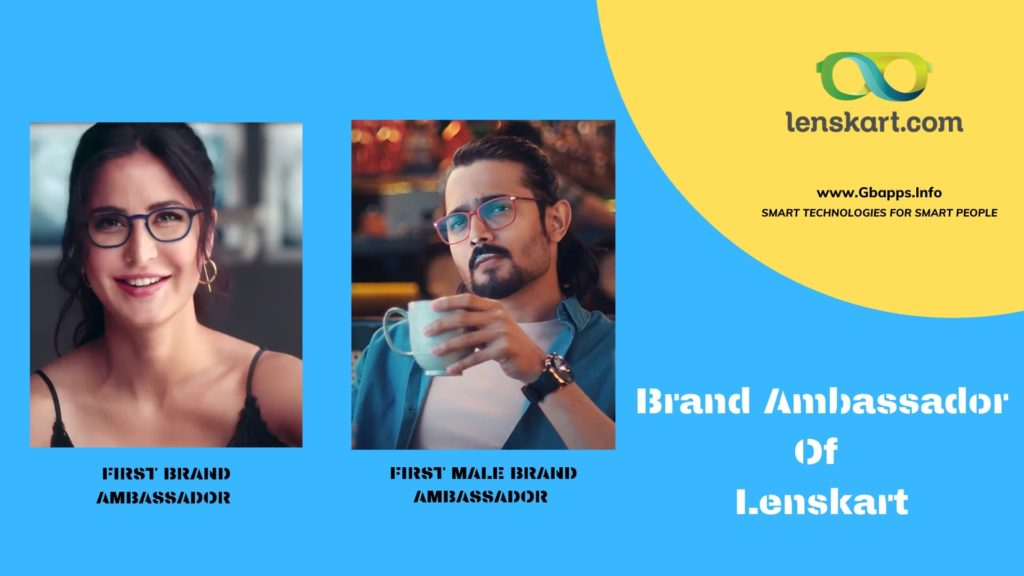
Bhuvan Bam- Lenskart appointed Youtube sensation Bhuvan Bam as its next brand ambassador in March 2019. Founders explained that the digital content of Bhuvan Bam is appealing to the youth and so he can help the brand gather more audiences.
Competition analysis of Lenskart:
In the herd of eye care industries, Lenskart has stood out among other online and offline competitors popular brands like GKB, Lawrence, and Mayo, Titan Eye Plus, Bausch + Lomb, Specsmakers, and Coolwinks are among the offline competitors of Lenskart, and Flipkart, Amazon, and Snapdeal are among the online competitors. Ray-Ban and Essilor are such brands that have a strong presence on online as well as offline platforms. Lenskart incorporates unique marketing strategies. Differential price points and innovative technologies make a strong presence in the eyewear industry. The products of Lenskart are affordable and long-lasting, targeting customers of different segments. The range of products starts from Rs. 345 up to Rs. 30,000.
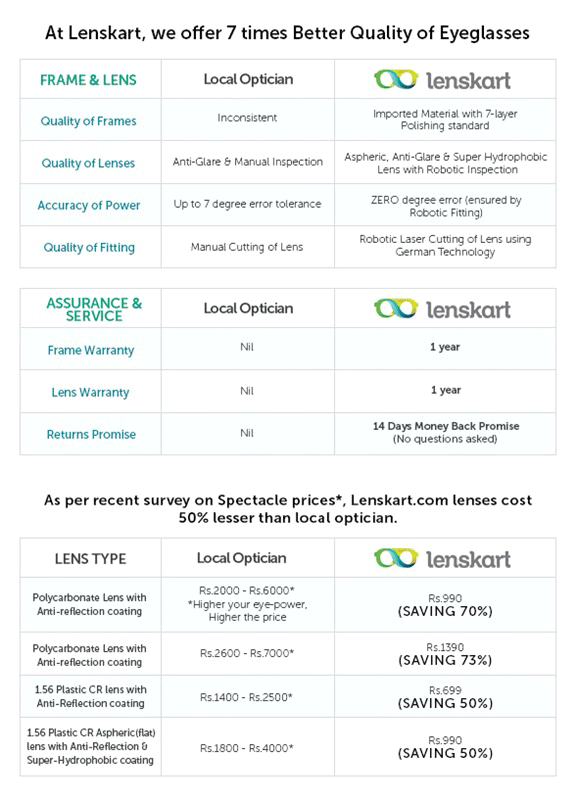
Range of products and services offered by Lenskart:
- “First frame is free” offer- Lenskart offers its customers to pay only for the lens on their first buy. And get the second frame for free.
- Eye checkup at home- The band introduced a home eye testing facility for the customers. Where an optometrist would visit the house of the customers to conduct the testing.
- “Try at home”- Lenskart allows a customer to choose up to 5 frames and try them at home before finally making a buy.
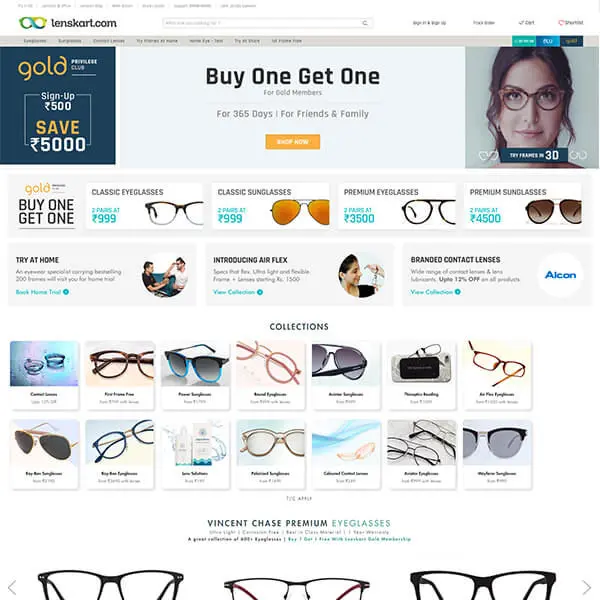
- Lenskart Blur (launched in 2019)- Eyewear solution to block harmful blue light rays. What emerges out of mobile and computer screens. It intends to avoid severe damage to the eyes due to such rays.
- Innovative techniques- First time in India, Lenskart introduced a 3D facial visualizer. Through this, a customer can see how the frame looks on him, before finally purchasing it.
- Wide range of products- Lenskart offers a huge range of products. Like sunglasses, premium eyeglasses, and glasses of different shapes (Wayfarer, oval, rounders, cat eye, etc.), Branded lenses (Ray-Ban, Johnson & Johnson), contact lenses, and others.
- Allows customers to replace their old glasses with new pairs of glasses.
- Live customer support help.
Winding up:
Lenskart has emerged as one of the top startups in India due to its unique marketing strategies and got listed among the “Top 10 promising e-commerce Indian startups in 2021” by the Indian Wire. The brand has reached a million hearts by providing the best eyewear solutions to people. It blends conventional methods with modern ones with a touch of the latest technologies. The goals of the company revolutionized the eyewear industry in India. The company has generated huge employment opportunities in the country through manufacturing and retailing processes.



Is Lenskart Case Study downloadable free for me.
thanks for this marketing us very good and nice
interesting..
Lenskart’s focus on technology has been a key factor in its success. The company’s proprietary 3D eye scanner and virtual try-on technology have made it possible for customers to get accurate prescriptions, find the right fitting glasses, and visualize how the glasses would look on them without ever having to leave their homes. This has helped Lenskart to overcome the traditional challenges of online eyewear retailing and attract a large number of customers